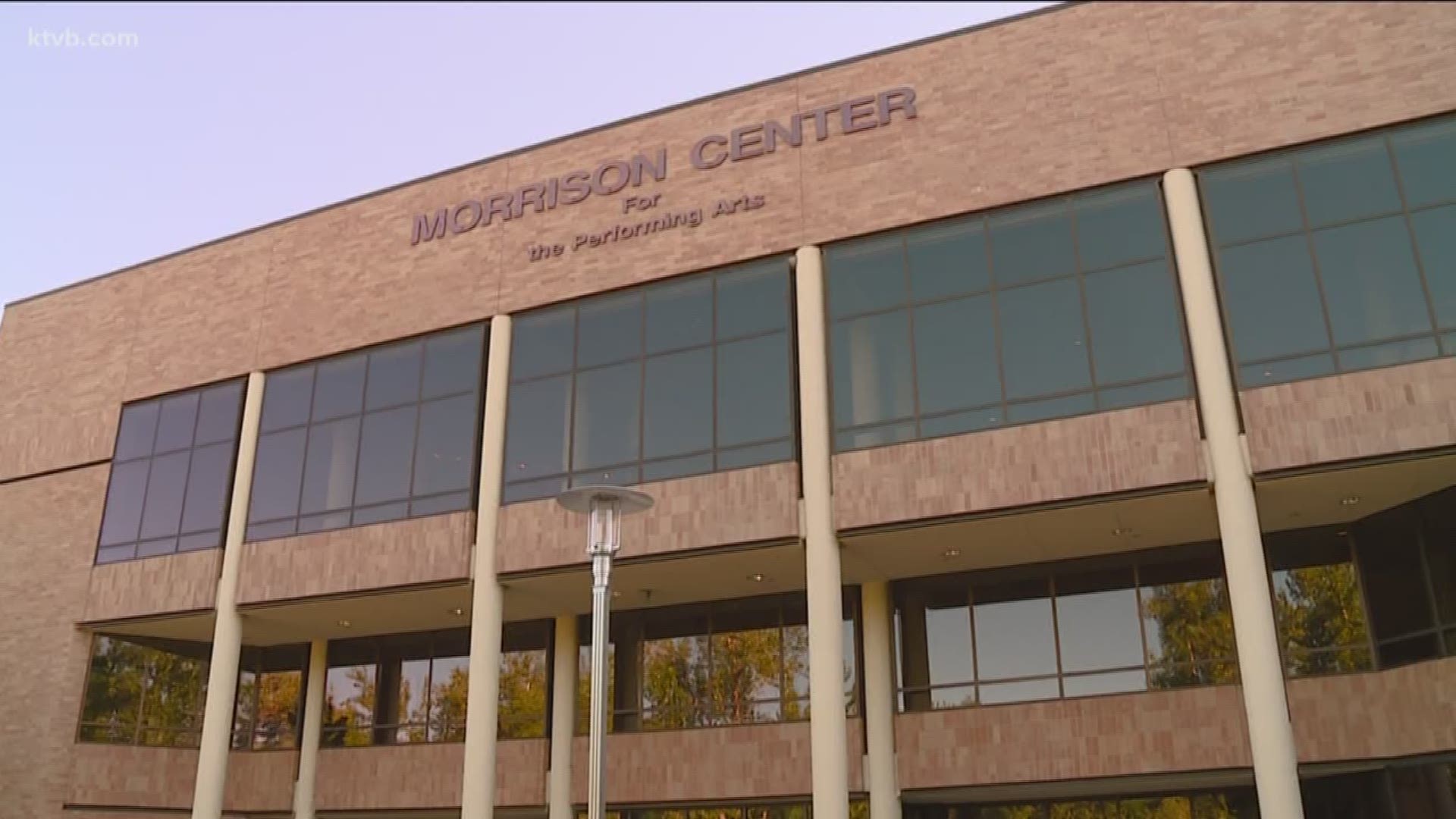STAR -- A Star woman is raising concerns about a situation that unfolded at the Morrison Center last month.
Jennifer Ballard was born with spina bifida and uses crutches to get around. She has her whole entire life. But for the first time at a public venue, they were taken away from her and she was told they were a safety hazard. Upset and feeling violated, she's raising awareness and sending a message about living with a disability.
"I've always just wanted to blend into the woodwork. I've worked very hard at just being independent and taking care of myself," Jennifer Ballard said.
Jennifer says she has been to shows at the Morrison Center before, as well as events at other venues across the Boise State University campus and across the city of Boise. But never before has she been told her crutches can't stay with her.
"Suddenly now it's an issue where there's never been a problem before," Ballard said. "This is the first time in many many years that I've ever had to deal with this type of a situation."
Jennifer says a Morrison Center employee told her, her husband and her 3-year-old daughter she would be their personal escort, taking them to their seat, as well as taking Jennifer's crutches. The crutches would be tagged, set in the back during the show, and brought back to her afterward.
"And I said, 'you're gonna do what with my crutches?'" Jennifer said. "I said, 'my crutches are my mobility, they're my legs. And when you take away my crutches you're taking away my legs and that's very uncomfortable for me. What if I need to get up to go to the bathroom? I'm here with my 3-year-old daughter, what if she needs to get up?'"
She says she was told someone would keep an eye on her, and in case she needed help she could raise her hand.
"I have the right to be able to move freely and taking away my crutches totally prohibits me from being able to do that. I cannot walk without the assistance of my crutches," Jennifer added.
Although very polite, she says the staff wouldn't budge. Citing a venue policy, employees told her fire safety code forbids items like mobility devices from being left in any aisle where they may become an obstruction in an emergency.
But Jennifer says she always tucks her crutches away where they won't pose a safety issue to anybody around her.
"My husband and I are very respectful when we do go out to places where my crutches need to be placed somewhere else. In this situation we would place them underneath our legs, underneath our feet, tucked in as far behind the seat as we can so that they're not sticking out and tripping anybody," Ballard said. "They would be like right here partially covered by the seat. There would be maybe two inches of them sticking out."
She says she felt insignificant because staff was focused on how other people would evacuate and get out safely in the case of an emergency.
"I just felt like they were overlooking how the person with the disability was going to get out. As if we were just sitting there being a fire hazard, being the obstacle people were going to have to jump over in order to get out."
KTVB reached out to the Morrison Center and Boise State University on Friday. BSU says that's a standard public safety practice for venues in order to keep people safe. They sent us the following statement:
"Boise State University is committed to complying with the ADA and ensuring our patrons have a safe route of exit in the event of a fire or emergency evacuation. We are looking into this patron's concern to determine if any additional action is necessary."
KTVB's Morgan Boydston made the Idaho State Fire Marshal aware of this situation. He told us he will look into it. He says perhaps employees misinterpreted the fire code and he believes there can be "other reasonable approaches to make sure people's rights aren't violated, but other patrons are safe".
"I think what I'd like to see, number one, is just more awareness and maybe getting people in the community that have disabilities involved in these decisions. Because while I understand fire codes and fire hazards, I think there could very well be a better way they could handle the situation and maybe the best way to do it is to talk to somebody in the community that has a disability," Jennifer said.

